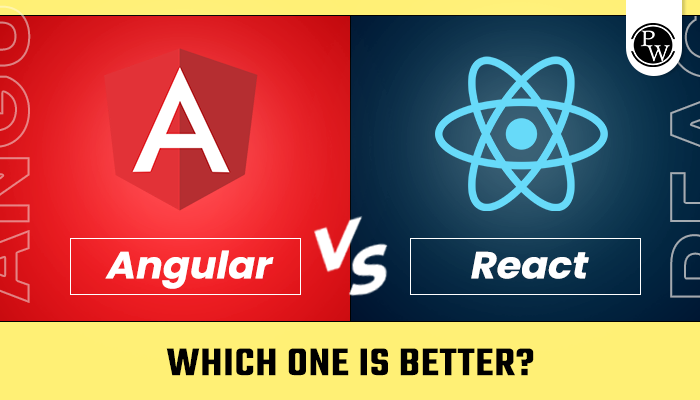In the field of web design and development, color serves as a powerful communicator for our website in addition to being purely aesthetic. Colors play an essential role in shaping digital experiences, from setting the mood of a website to guiding user interactions. CSS (Cascading Style Sheets), the web styling language, provides designers with various tools to paint their web pages. Join us on a chromatic journey to discover the vibrant world of types of colors in CSS.
Recommended Course
- Decode DSA with C++
- Full Stack Data Science Pro Course
- Java For Cloud Course
- Full Stack Web Development Course
- Data Analytics Course
Get ready to learn about the magic of gradients and shadows, the mysteries of RGB and HSL values, the mysterious world of alpha channels, and more. Whether you are an experienced web designer or just starting out, this article will give you insights and practical knowledge to make your web creations truly shine with the knowledge of CSS colors.
PW Skills Provide Various Platform
What is CSS?
CSS stands for Cascading Style Sheets. This style sheet language is used to add representation styles to markup languages such as HTML or XML documents. It enables the segregation of the content and the presentation, which improves accessibility, provides flexibility, and controls the layouts. It also provides flexibility to represent on various devices with different resolutions.
The name cascading is derived from the specified priority scheme for determining which style rule applies if more than one rule matches a specific element. This priority scheme with cascading priorities is predictable.
What are CSS Colors?
There are several colors used in the CSS to enhance the representation.
The amount of light an object emits at each visible wavelength determines its color, including the colors on a computer screen. The colors are written in different forms, which include HEX colors, HSL colors, HWB colors, and RGB colors. They can be accessed in various ways, depending on the form.
Web designers can use system colors, which are color names whose values are taken from the operating system, to choose the highlighted text color or background color for tooltip controls in CSS 2, SVG, and CSS 2.1.
| Types Of CSS Colors In Web Development |
| .physicsWallah {
color: red; } |
| Types Of CSS Colors in Web Development |
| <!DOCTYPE html>
<html> <head> <link rel=”stylesheet” type=”text/css” href=”styles.css”> </head> <body> <p class=”physicsWallah”> This is Physics Wallah. Join us for more adventure onboard </p> </body> </html> |
Different Types of CSS Colors
There are several ways to specify colors in CSS: Named colors, Hexadecimal color codes, RGB values, RGBA values, HSL values, and HSLA values. Detailed information about each is mentioned below:
Named Colors
These are the predefined color keywords that anyone can use directly in CSS. The commonly named colors, such as white, blue, green, red, and black. There are about 147 named colors in CSS (Level 3). Having numerous named colors provides a convenient way to use simple colors.
Hexadecimal Color Codes
These combinations of six characters, which represent the intensity of the Red, Green, and Blue channels, are created using the numbers 0 through 9 and the letters A through F. The format of the color codes is #RRGGBB, where RR stands for the Red value, BB for the Blue value, and GG for the Green value.
RGB Values
RGB stands for Red, Green, and Blue. It is a way to specify colors using numerical values for each channel. The format of the RGB Values is ‘rgb (red, green, blue)’. The values of each color vary from 0 to 255.
RGBA Values
The format of the RGBA Value is “rgba (red, green, blue, alpha)”, and the value of alpha ranges from 0 to 1. The minimum value of alpha results in complete transparency, while the maximum value of alpha results in complete opaqueness.
HSL Values
The HSL stands for Hue, Saturation, and Lightness. It is the color representation system based on these three components. The format of HSL Values is ‘hsl (hue, saturation%, lightness%). The values of saturation and lightness percentage vary from 0% to 100% and hue is an angle in degrees which varies from 0 to 360 degrees.
HSLA Values
Like RGBA is an extension of RGB, similarly, HSLA is an extension of HSL Values. The A in the extension stands for the Alpha channel. The alpha channel is responsible for the transparency control of the color. The format of the HSLA Values is ‘hsla (hue, saturation%, lightness%, alpha).’ The value of alpha varies from 0 to 1.
| Types of colors in web development | |
| Type of Color | Description |
| Keyword Colors | Named colors like red, blue, and green. |
| RGB Values | Red, Green, and Blue values (0–255) are used for representation. |
| Hexadecimal Values | Six-digit values in hexadecimal format. |
| RGBA Values | RGB with an additional alpha (transparency) value. |
| HSL Values | Hue, Saturation, and lightness levels |
| HSLA Values | HSL with an additional alpha (transparency) level |
| Color Names | Named colors such as gold, coral, or alice blue. |
| System Colors | System-dependent color values. |
| Current Color | Inherits the color from the parent element. |
Application of Different Types of Colors in CSS
Some important modifications and flexibility that CSS Colors provide us in our web design are given here.
- Text Color: Using Named colors for basic text content to ensure readability. Precisely controlling text color by specifying the hexadecimal or RGB Values. These different types of colors can be used for different purposes.
- Background Color: Named colors can be used for background elements like headers, footers, or navigation bars. Similarly, specifying a background color precisely using Hexadecimal or RGB Values for custom Background shades that complement the design.
- Buttons and UI Elements: Choosing the color carefully for buttons and user interface is essential as it evokes specific emotions. For instance, using red for the warning or alerts. Use of HSL or HSLA to easily adjust the hue, saturation, and lightness of the buttons and UI elements.
- Links and Navigation: Applying color changes to the links and navigation elements using different colors or the change on hover and click actions. Use of RGBA or HSLA Values to ensure a semi-transparent navigation Background and provide visual cues without obstructing content.
- Data Visualization: In data visualizations such as charts and graphs, color scales to represent different data. Changing color gradually conveys information efficiently. Applying RGBA or HSLA to make specific data points different from others while maintaining the overall context.
- Gradients and Effects: Applying gradients to elements in CSS to create seamless color transitions. Backgrounds, buttons, and decorative elements can all benefit from gradients. Adding shadows of a specific color to text or elements to add depth and visual interest.
- Theming and Customization: Using CSS variables to define colors in one place and reuse them throughout the stylesheet simplifies theme changes and customizations.
- Animations and Transitions: Animate color changes smoothly using RGBA or HSLA Values and CSS Transitions or Animations. This can be used for buttons, Loading spinners, etc.
- State Indicators: Using color changes to indicate the state of elements, such as whether they are active, inactive, selected, or in error. This certainly improves interaction and user feedback.
Recommended Reads
Data Science Interview Questions and Answers
Data Science Internship Programs
IIT Madras Data Science Course
FREQUENTLY ASKED QUESTIONS
Q1. What do the codes indicate about the CSS Colors?
Ans. The color codes are generally hex codes. The format of hex color codes is ‘#RRGGBB’ where R stands for red, G stands for green, and B stands for blue. The code indicates the composition value of the RGB colors to form a particular color.
Q2. What are the different Types Of CSS Colors specify colors in CSS?
Ans. There are a total of six ways to specify colors in CSS based to the implementation of the color:
- Named colors
- Hexadecimal Color Codes
- RGB Value Colors
- RGBA Value Colors
- HSL Value Colors
- HSLA Value Colors
Q3. What are the different color keywords used in CSS?
Ans. Color can be specified using predefined color names, or RGB, HEX, HSL, RGBA, or HSLA values. In CSS, any color can be specified using a predefined color name. The HTML or CSS supports 140 Standard color names.




